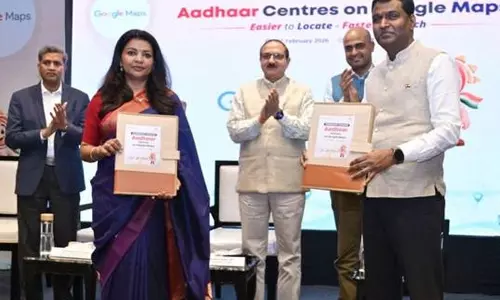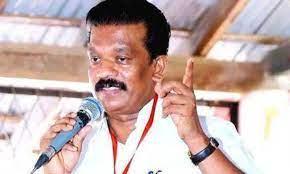
Untouchability - even towards a minister
text_fieldsIt has been a century since the historical Vaikkom Satyagraha movement which Kerala has started to celebrate. It was the first organised protest against untouchability in India. Starting from March 30, 1924, the protest lasted for 603 days. The goal of the epic struggle was to winthe freedom to walk around the public pathways around the temple for people of all castes. But from what the State Devaswom Minister K. Radhakrishnan narrated up about the bad experience he faced at a temple in Malabar, it transpires that even after a century from that historic event, the mindset of untouchability is prevailing in Kerala. While speaking to an audience recently at an event, the minister himself revealed the casteist behaviour he encountered. He said the priests excluded him from lighting the lamp during the temple ceremony, he obliged and stepped away in order not to violate the tradition.
Also read: Caste discrimination still exists in some minds: Minister Radhakrishnan
The untouchabilityhe suffered goes to shatter the tall claims about the Kerala's renaissance. K. Radhakrishnan was born in a Dalit community and his being charged with the Devaswom department in the second Pinarayi cabinet was hailed as a big deal. In fact, that very portrayal is a flip side of the claim of reform achieved. There is something wrong with the mindset of any modern Malayali if he deems it a big deal to task an elected official from the SC/ST community with the Devaswom department. K. Radhakrishnan has now pointed out the faults in our claims about the reformed Kerala. In his capacity as the minister in charge of Devaswom, he is in charge of all the affairs of the temples. The priests who denied him the right to touch the temple's lamp are his subordinates. They decided K. Radhakrishnan is not worthy of taking part in the ceremony even if he is the minister and their superior officer for the simple reason that he hailed from the lower rungs of the caste hierarchy they protect and keep alive. Even though he was invited to the event, no one noticed this human rights violation until the minister himself chose to reveal it. If none of the people who took part in the event realised the severe discrimination, it is a sign that society as a whole accepts it. The minister said that he gave a retort to the behaviour at the event itself. But, more than that verbal protest, wasn't it necessary to take action against them? Under the Scheduled Castes Protection Act, caste domination is a crime. Even the Chief Minister only said action will be taken in the matter after speaking with K. Radhakrishnan. That means, if the minister does not file a complaint, it is not an issue.
Also read: Trinamool Congress questions President's absence at new parliament building event
Appointing priests who are not Brahmins was a revolutionary action taken by the first Pinarayi government. In 2017, these priests were appointed and the discrimination they faced in the temple hasn't been forgotten yet. This is happening at the same time when people in Tamil Nadu are successfully appointing women priests. Tamil Nadu Minister Udhayanidhi Stalin recently said that sanatana dharma is against equality and social justice. He also said that it has to be eliminated from society just as done with viruses causing Covid, malaria, and dengue. He said the system is as dangerous as a pathogen. It took no time for people who back the caste system to spring up issuing threats to his life. Social reformers in Kerala came forward lauding Udhayanidhi. But, no such support was given to K. Radhakrishnan and no one slammed the caste discrimination he faced. It will not take an investigation to get at the reason behind this: there is a common notion that it is okay to discriminate against a minister hailing from the SC/ST community.
Also read: PM Modi opens the new parliament building against the backdrop of prayers
Radhakrishnan is not the first elected representative to experience caste-based discrimination in free, democratic India which assures equal treatment to its citizens. Babu Jagjivan Ram - freedom fighter, senior Congress leader, and former Indian deputy Prime Minister - also had to face the heat of untouchability. In 1978, when he was Union Minister, he went to Varanasi to unveil the statue of former Uttar Pradesh Chief Minister Dr. Sampurnanand's statue. At the event, some people called him by the name of his caste as a way of insulting him. They also "cleansed" the statue with water from Ganga because it was touched by a Dalit. There is no reason to believe that President Draupadi Murmu was excluded from the inauguration of the new Parliament building in May for any other reason. The extremist right-wing led by Sangh Parivar is in a ceaseless effort to bring back such unwelcome customs. If the left government of Kerala which is supposed to fight against this agenda, has not felt offended by the discrimination faced by a minister of its own cabinet, that is a sign of a shocking situation. As long as this mind-set remains uncorrected, the only thing possible is to keep repeating that mere rhetoric about renaissance will not suffice.






















